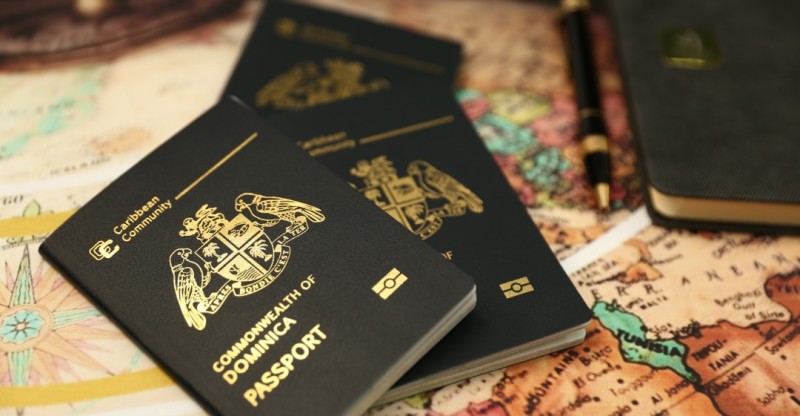Key among the Commission’s new stated goals, which are being proposed to the European Parliament and were released in a Wednesday report, are changes that would make it easier for the EU to suspend visa-free travel from countries that sell citizenship to foreigners.
At present, a so-called “suspension mechanism” lets EU states temporarily suspend visa-free travel for a particular country “in case of a sudden and substantial increase in irregular migration or security risks.”
But the new report says such citizenship-by-investment (CBI) schemes can threaten “the public policy or internal security of the Member States, including those related to infiltration of organized crime, money-laundering, tax evasion and corruption.” As such, the Commission would like to make the visa suspension mechanism easier to trigger.
Speaking Thursday, EU Home Affairs Commissioner Ylva Johansson said certain nations are selling passports “quite cheaply to people that are security risks or potential security risks to the EU.”
The EU move comes days after the publication of Dominica: Passports of the Caribbean, a major collaboration between OCCRP, the Government Accountability Project and media partners revealed how Dominica has for years sold its citizenship with little oversight.
The project outlined how the island has granted citizenship to certain people who had previously been investigated, charged with crimes, or sentenced to prison. Other individuals later became fugitives from their home countries, having earlier received their new Dominica documents.
As well as nefarious actors, passport records revealed Dominica citizenships are also held by numerous government officials, past and present, who are not accused of wrongdoing but whose status as “politically exposed persons” merited further scrutiny.
Dominica’s CBI program mushroomed from 2015, when citizens of certain Caribbean states were allowed to travel to most EU states for 90 days, visa-free.
But in its report, the EU Commission said Caribbean CBI schemes are not doing a good job of tracking applicants. For example, it said information exchange with the applicants’ country of origin happens only “to some extent” but “does not appear to happen in a systematic manner.”
The report noted, too, that Antigua and Barbuda, Grenada, St Kitts and Nevis, St Lucia, and Dominica all offer successful applicants “the possibility to change identity after having obtained citizenship by investment.”
In total, the Commission said at least 88,000 passports had been issued by CBI programs to date across the five aforementioned Caribbean states. Dominica is reported by the EU to have issued 34,500 passports. The report added that when such high figures are matched with a low rejection rate of between three and six percent across the five countries, as well as a short processing time, clear questions are raised as to “the thoroughness of the security screening.”
It remains unclear from the Commission’s report within which time period the 34,500 Dominica passports were issued; its CBI program has been open since 1993. However, the figure dwarfs, by a factor of four, the 7,700 names reporters were able to find by sifting through the island’s public gazettes for the years 2007 to 2022. The gazettes are meant to serve as the official record of new passport holders.
Reporters from OCCRP and the Guardian had also found that naturalization fees listed in Dominica’s national budgets, covering mid-2016 to mid-2022, suggested that Dominica had collected enough such fees to account for more than 19,000 new citizens over that period alone. Now, the EU’s own numbers appear to confirm that Dominica has failed to report many thousands of passports.
The U.K. recently moved to impose visa requirements on Dominican travelers, citing “clear and evident abuse” of the CBI scheme.
Neither the government of Dominica, nor its President Roosevelt Skerrit, responded to multiple requests for comment by OCCRP and partners before Dominica: Passports of the Caribbean was published. Instead, after being sent detailed questions, Skerrit held press conferences at which he falsely claimed that international reporters were being paid off by his political opposition. He also likened the reporters to “terrorists.”
In asking the European Parliament to enact new legislation on visa-free entry protocols, the Commission said easy access to the EU should not be used as a selling point by countries that hawk their citizenship in return for investment.
The report said the EU should be able, based on the Commission’s analysis, “to suspend the visa exemption for a third country that chooses to operate an investor citizenship scheme whereby citizenship is granted without any genuine link to the third country concerned …”



